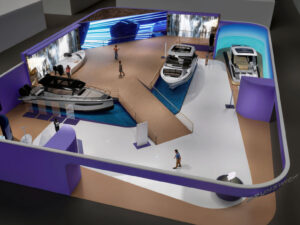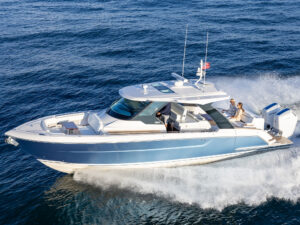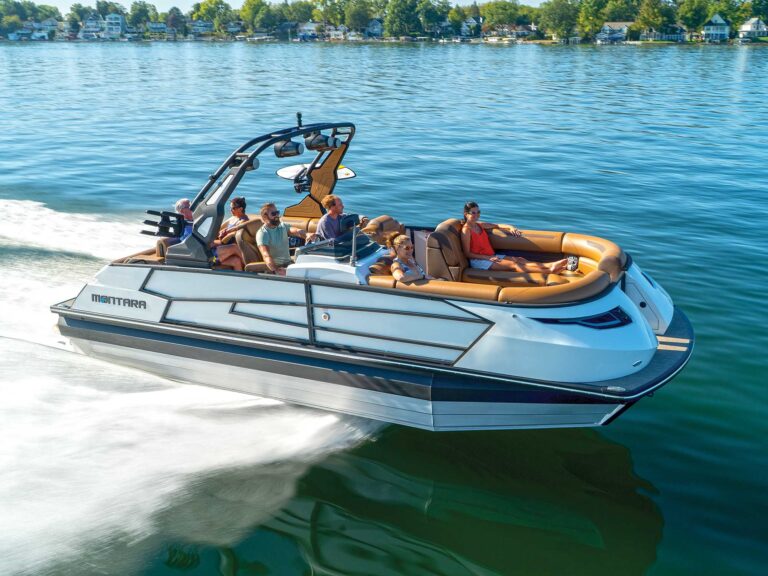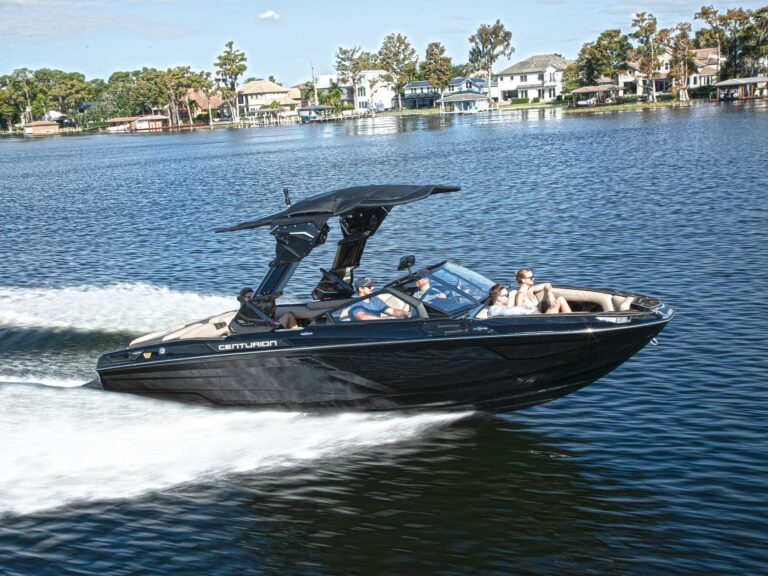
Brian and Eric Davis have revealed they are leaving Seven Marine just weeks after Volvo Penta announced in February that the entire lineup of Seven Marine engines has been incorporated into the Volvo Penta production process at the organization’s facility in Lexington, Tennessee.
Brothers Brian and Eric founded the mega-outboard firm in Wisconsin with their father, Rick Davis, in 2010. Seven Marine was acquired by Volvo Penta in 2017 and Brian and Eric Davis intended stay on board through the integration into the Volvo Penta organization.
“The Davis family has been involved with Seven for 10 years and 2½ with Volvo Penta,” he said. “It gives us the opportunity to step out of the organization with all the pieces in place for Volvo Penta to move forward.”
Brian and Eric Davis will pursue new business opportunities in additive manufacturing and 3-D printing.
Transitioning production of the Seven Marine engines from its original facility in Germantown, Wis., into Volvo Penta’s established manufacturing facility is part of the overall strategy to further develop the company’s outboard offering. Since acquiring Seven Marine in 2017, efforts have focused on expanding the Seven Marine product lineup and integrating proven Volvo Penta solutions, according to Volvo Penta.
“With this step, we are better positioned to leverage the full scope of Volvo Penta assets from the deep expertise and competencies of our team, to our robust manufacturing capabilities and high production standards,” said Peter Hertinge, Senior Vice President of Global Operations and Quality for Volvo Penta. “We are proud of the journey that’s led us to this integration and see great opportunity ahead.”
In 2018 Seven Marine extended its horsepower range to include 527-hp and 577-hp models, and enhanced its 627 hp flagship model, all powered by a supercharged 6.2-liter General Motors V8 engine. In 2019 when Volvo Penta integrated all Seven Marine outboards with the company’s Electronic Vessel Control (EVC) and associated solutions such as DuoProp, joystick docking and driving, Glass Cockpit and more. The Volvo Penta Integrated Outboard Experience debuted first on a Tiara Sport 38LS and earned the NMMA Innovation Award in the outboard category at the 2019 Miami Boat Show.

The 210,000 square foot facility in Lexington houses Volvo Penta’s production of all gasoline engines and drives for worldwide distribution. It also houses a final assembly line for production of industrial off-road engines. Adhering to the Volvo Production System (VPS), the facility operations place emphasis on high levels of precision through the use of advanced production techniques. Aligning with the Volvo Group’s commitment to VPS practices, the factory holds several ISO certifications in the areas of production process management, environmental management and occupational health and safety.
An outboard engineering office has been established in Germantown and Rick Davis will continue to work with the Volvo Penta team. Eric Davis, 42, worked with his father to develop the high-horsepower outboard. Brain Davis, 44, was vice president of outboard sales.
“I think our thumbprints are all over the market,” said Brian Davis. “When we started there were perhaps 15 boats designed to handle big outboards. Now there may be 500 boats. I think we proved that there’s a space in the market for powerful outboards on boats up to 65,000 pounds. We’ve paved the way for more-powerful outboards from Yamaha and Mercury, and allowed them to move far enough up in price to make a motor like the Mercury Racing 450R, for example, economically feasible. We needed to partner with Volvo Penta to get capital, to establish a global service network, and to implement comprehensive testing and manufacturing processes. Volvo in turn committed to investing in our platform, and they have done that.”
Rick Davis had retired as Chief Technology Officer at Mercury Marine and a 32-year career in the marine engine industry in 2009 when Eric Davis tossed out the idea of building a 1,000-hp outboard. The pair had formed the consulting firm Davis Engineering at the time.
“Eric looked at boats running quad outboards and thought that two really powerful outboards would be a better solution,” said Rick Davis. “His original idea combined a big-block Mercury Racing engine with the transmission from a Zeus pod drive and a Merc Racing Six gearcase. He actually created a CAD drawing. He had a why-not attitude and an answer for every yeah-but problem I could identify.”
Impressed by the concept and burned out at a job selling software, younger brother Brian Davis, also an engineer, joined the Seven team to handle marketing and sales.
“I set up meetings with boat builders at the 2010 Miami International Boat Show just to present the idea,” said Brian. “A few thought we were nuts, but we had enough interest to move forward.” A year later, the Seven 557 prototype outboard was on display at the Miami show.









